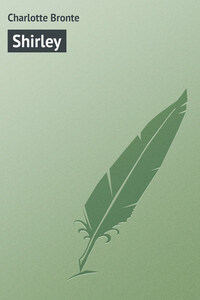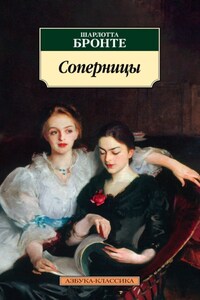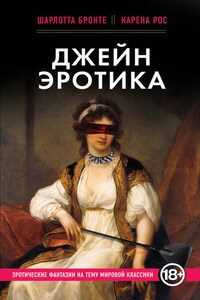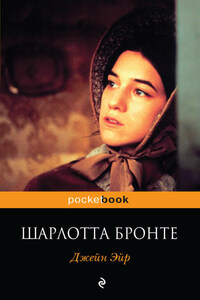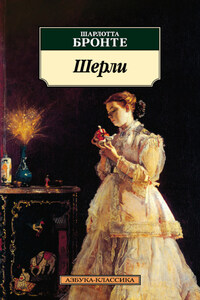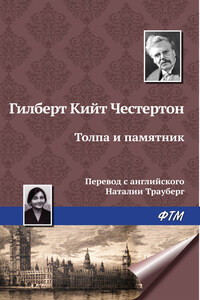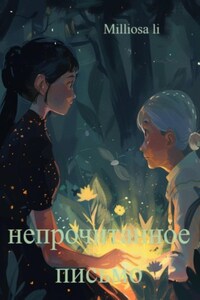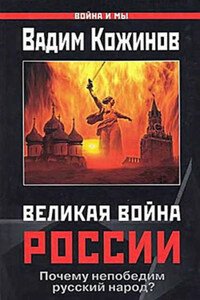Of late years an abundant shower of curates has fallen upon the north of England: they lie very thick on the hills; every parish has one or more of them; they are young enough to be very active, and ought to be doing a great deal of good. But not of late years are we about to speak; we are going back to the beginning of this century: late years – present years are dusty, sunburnt, hot, arid; we will evade the noon, forget it in siesta, pass the midday in slumber, and dream of dawn.
If you think, from this prelude, that anything like a romance is preparing for you, reader, you never were more mistaken. Do you anticipate sentiment, and poetry, and reverie? Do you expect passion, and stimulus, and melodrama? Calm your expectations; reduce them to a lowly standard. Something real, cool, and solid lies before you; something unromantic as Monday morning, when all who have work wake with the consciousness that they must rise and betake themselves thereto. It is not positively affirmed that you shall not have a taste of the exciting, perhaps towards the middle and close of the meal, but it is resolved that the first dish set upon the table shall be one that a Catholic – ay, even an Anglo-Catholic – might eat on Good Friday in Passion Week: it shall be cold lentils and vinegar without oil; it shall be unleavened bread with bitter herbs, and no roast lamb.
Of late years, I say, an abundant shower of curates has fallen upon the north of England; but in eighteen-hundred-eleven-twelve that affluent rain had not descended. Curates were scarce then: there was no Pastoral Aid – no Additional Curates’ Society to stretch a helping hand to worn-out old rectors and incumbents, and give them the wherewithal to pay a vigorous young colleague from Oxford or Cambridge. The present successors of the apostles, disciples of Dr. Pusey and tools of the Propaganda, were at that time being hatched under cradle-blankets, or undergoing regeneration by nursery-baptism in wash-hand basins. You could not have guessed by looking at anyone of them that the Italian-ironed double frills of its net-cap surrounded the brows of a preordained, specially-sanctified successor of St. Paul, St. Peter, or St. John; nor could you have foreseen in the folds of its long night-gown the white surplice in which it was hereafter cruelly to exercise the souls of its parishioners, and strangely to nonplus its old-fashioned vicar by flourishing aloft in a pulpit the shirt-like raiment which had never before waved higher than the reading desk.
Yet even in those days of scarcity there were curates: the precious plant was rare, but it might be found. A certain favoured district in the West Riding of Yorkshire could boast three rods of Aaron blossoming within a circuit of twenty miles. You shall see them, reader. Step into this neat garden house on the skirts of Whinbury, walk forward into the little parlour. There they are at dinner. Allow me to introduce them to you: Mr. Donne, curate of Whinbury; Mr. Malone, curate of Briarfield; Mr. Sweeting, curate of Nunnely. These are Mr. Donne’s lodgings, being the habitation of one John Gale, a small clothier. Mr. Donne has kindly invited his brethren to regale with him. You and I will join the party, see what is to be seen, and hear what is to be heard. At present, however, they are only eating; and while they eat we will talk aside.
These gentlemen are in the bloom of youth; they possess all the activity of that interesting age – an activity which their moping old vicars would fain turn into the channel of their pastoral duties, often expressing a wish to see it expended in a diligent superintendence of the schools, and in frequent visits to the sick of their respective parishes. But the youthful Levites feel this to be dull work; they prefer lavishing their energies on a course of proceeding which, though to other eyes it appear more heavy with ennui, more cursed with monotony, than the toil of the weaver at his loom, seems to yield them an unfailing supply of enjoyment and occupation.
I allude to a rushing backwards and forwards, amongst themselves, to and from their respective lodgings – not a round, but a triangle of visits, which they keep up all the year through, in winter, spring, summer, and autumn. Season and weather make no difference; with unintelligible zeal they dare snow and hail, wind and rain, mire and dust, to go and dine, or drink tea, or sup with each other. What attracts them it would be difficult to say. It is not friendship, for whenever they meet they quarrel. It is not religion – the thing is never named amongst them; theology they may discuss occasionally, but piety – never. It is not the love of eating and drinking: each might have as good a joint and pudding, tea as potent, and toast as succulent, at his own lodgings, as is served to him at his brother’s. Mrs. Gale, Mrs. Hogg, and Mrs. Whipp – their respective landladies – affirm that “it is just for naught else but to give folk trouble.” By “folk” the good ladies of course mean themselves, for indeed they are kept in a continual “fry” by this system of mutual invasion.
Mr. Donne and his guests, as I have said, are at dinner; Mrs. Gale waits on them, but a spark of the hot kitchen fire is in her eye. She considers that the privilege of inviting a friend to a meal occasionally, without additional charge (a privilege included in the terms on which she lets her lodgings), has been quite sufficiently exercised of late. The present week is yet but at Thursday, and on Monday Mr. Malone, the curate of Briarfield, came to breakfast and stayed dinner; on Tuesday Mr. Malone and Mr. Sweeting of Nunnely came to tea, remained to supper, occupied the spare bed, and favoured her with their company to breakfast on Wednesday morning; now, on Thursday, they are both here at dinner, and she is almost certain they will stay all night. “C’en est trop,” she would say, if she could speak French.
Mr. Sweeting is mincing the slice of roast beef on his plate, and complaining that it is very tough; Mr. Donne says the beer is flat. Ay, that is the worst of it: if they would only be civil Mrs. Gale wouldn’t mind it so much, if they would only seem satisfied with what they get she wouldn’t care; but “these young parsons is so high and so scornful, they set everybody beneath their ‘fit.’ They treat her with less than civility, just because she doesn’t keep a servant, but does the work of the house herself, as her mother did afore her; then they are always speaking against Yorkshire ways and Yorkshire folk,” and by that very token Mrs. Gale does not believe one of them to be a real gentleman, or come of gentle kin. “The old parsons is worth the whole lump of college lads; they know what belongs to good manners, and is kind to high and low.”
